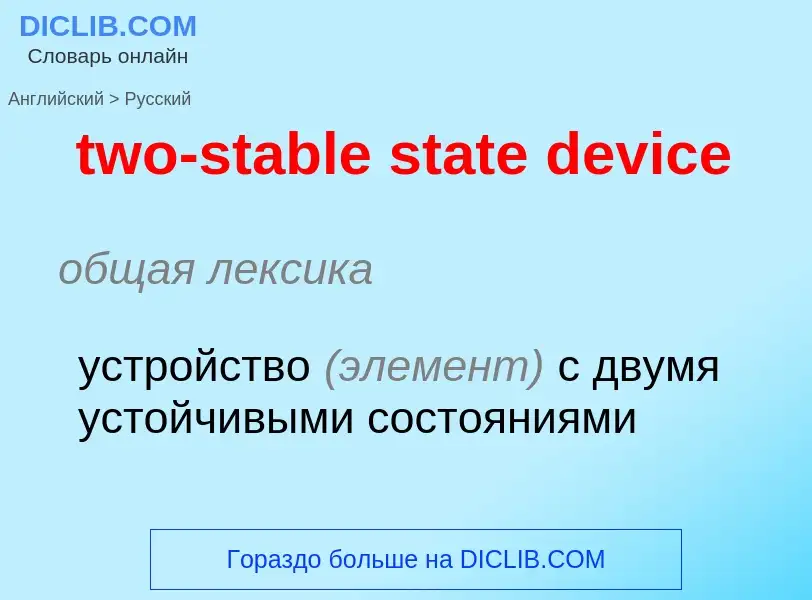Μετάφραση και ανάλυση λέξεων από την τεχνητή νοημοσύνη ChatGPT
Σε αυτήν τη σελίδα μπορείτε να λάβετε μια λεπτομερή ανάλυση μιας λέξης ή μιας φράσης, η οποία δημιουργήθηκε χρησιμοποιώντας το ChatGPT, την καλύτερη τεχνολογία τεχνητής νοημοσύνης μέχρι σήμερα:
- πώς χρησιμοποιείται η λέξη
- συχνότητα χρήσης
- χρησιμοποιείται πιο συχνά στον προφορικό ή γραπτό λόγο
- επιλογές μετάφρασης λέξεων
- παραδείγματα χρήσης (πολλές φράσεις με μετάφραση)
- ετυμολογία
two-stable state device - translation to ρωσικά
общая лексика
устройство (элемент) с двумя устойчивыми состояниями
математика
двухуровневая система
общая лексика
стабильный изотоп
Ορισμός
, -ся.
Βικιπαίδεια
In quantum mechanics, a two-state system (also known as a two-level system) is a quantum system that can exist in any quantum superposition of two independent (physically distinguishable) quantum states. The Hilbert space describing such a system is two-dimensional. Therefore, a complete basis spanning the space will consist of two independent states. Any two-state system can also be seen as a qubit.
Two-state systems are the simplest quantum systems that are of interest, since the dynamics of a one-state system is trivial (as there are no other states the system can exist in). The mathematical framework required for the analysis of two-state systems is that of linear differential equations and linear algebra of two-dimensional spaces. As a result, the dynamics of a two-state system can be solved analytically without any approximation. The generic behavior of the system is that the wavefunction's amplitude oscillates between the two states.
A very well known example of a two-state system is the spin of a spin-1/2 particle such as an electron, whose spin can have values +ħ/2 or −ħ/2, where ħ is the reduced Planck constant.
The two-state system cannot be used as a description of absorption or decay, because such processes require coupling to a continuum. Such processes would involve exponential decay of the amplitudes, but the solutions of the two-state system are oscillatory.

